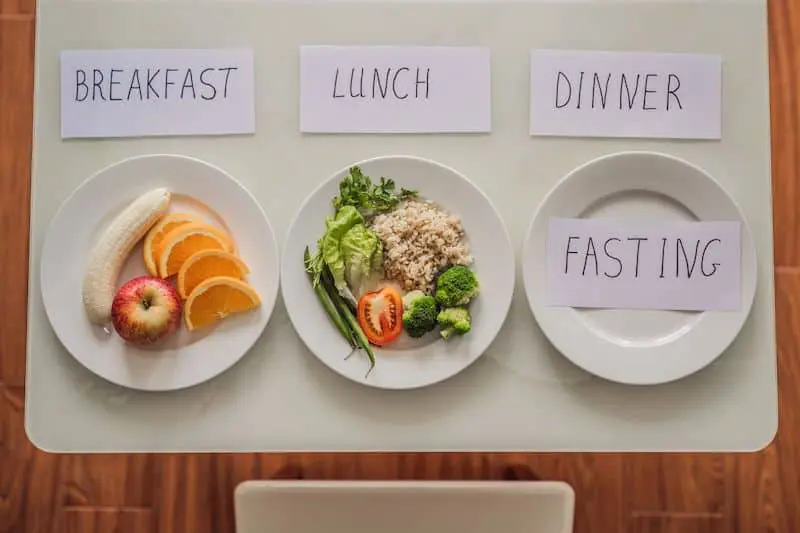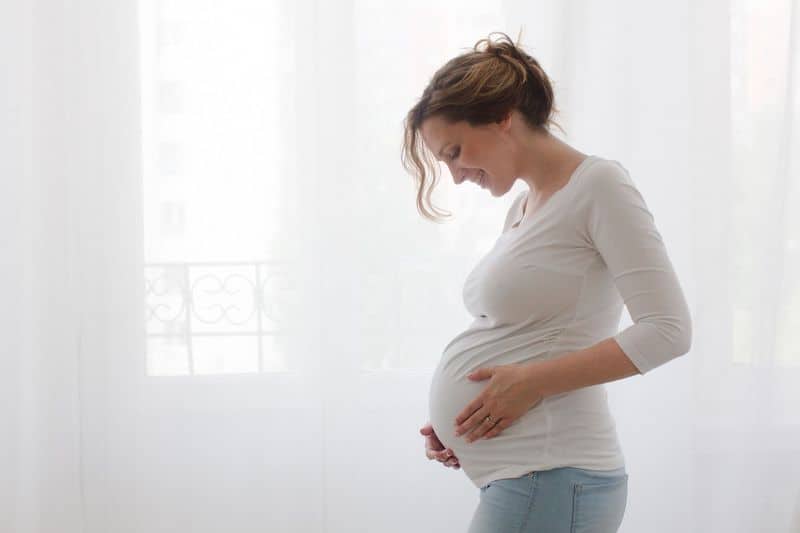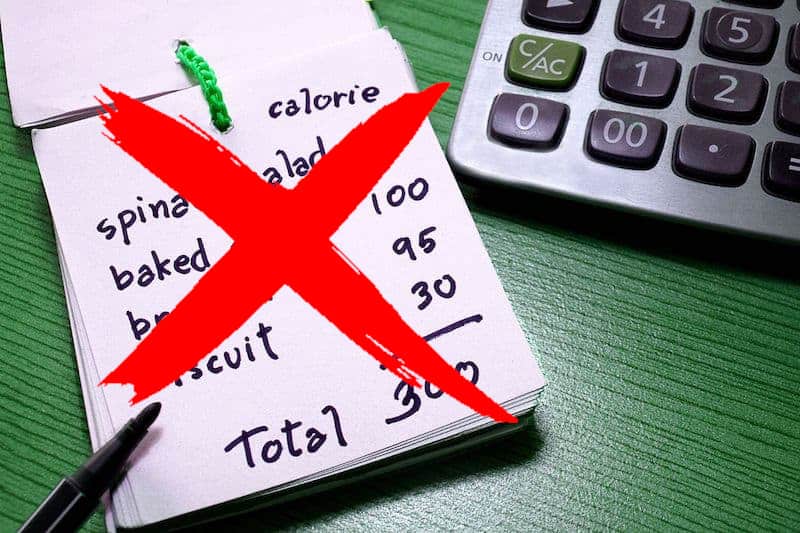
The best online fitness resource you'll ever need. We filter out the BS to ensure you meet your health and fitness goals!

The best online fitness resource you'll ever need. We filter out the BS to ensure you meet your health and fitness goals!

It can be very easy to assume that all diets work the same for everyone. We’re all human. We all need food. We all store energy as body fat. So why wouldn’t intermittent fasting work the same whether you were born a man or a woman?
Well. It’s actually a little more nuanced than that. So, if you’re a woman and you’re reading this, or you know a woman who’s considering intermittent fasting, you need to understand that actually fasting can cause certain complications for women specifically. And some care should be taken.

Intermittent fasting is a diet which restricts how long in a day you have to eat instead of simply restricting the exact food or calories you can choose from.
Traditional diets such as keto restrict whole macronutrients such as carbohydrates from your eating habit. Calorie counting restricts how much food you can eat in a day.
Neither of these rules come into play with IF.
Instead you simply have less time in a day to eat. The overall aim is a reduction in body fat, however there are additional purported benefits from reducing the amount of time you have to eat in the day, such as greater use of fat as a fuel source, better management of type 2 diabetes and purported cognitive benefits.
Body fat reduction itself only happens when the body experiences a negative energy balance. In short, every action the body takes burns a certain amount of calories.
You consume calories by eating food, and those calories contribute to the calories you burn each and every day. If you consume more calories than you need to burn, those extra calories are stored as body fat for when they may be needed at a later date.
The more you consume over your ‘maintenance’ (the exact number of calories you need to match the calories you burn in the day), the more fat you store.
The more body fat you store, the more at risk you are of certain health conditions such as heart disease, type 2 diabetes and even some cancers. To name just a few risks.
A calorie deficit occurs by actively reducing the amount of calories you consume, increasing the caloric output through activity, or a mixture of both.
Any diet in the history of diets that work simply puts you in a caloric deficit. Either by restricting entire food groups, or restricting the amount of time you have to eat. Like intermittent fasting.

Men and women share many similarities in how their bodies work. They both store fat in a calorie surplus. They both burn calories through activity. And even share many of the same potential health conditions that can cause additional body fat gain such as hypothyroidism.
So when comparing the two, the process of engaging in intermittent fasting and dieting is incredibly similar.
Where they differ significantly is with the female menstrual cycle.
It’s no surprise to anyone that a woman’s body goes through significant changes to prepare itself for potential child birth. The impact on hormones, physiology and the variance in bleeding during this time not only impact women significantly, but can also be different between individual women.
What this means is that whilst physiologically speaking women are different to men, there are also differences between women. This can make giving advice on dieting fairly difficult, as an individual approach has to be taken.
However, the limited data we do have available suggests that whilst intermittent fasting can work for women from a body fat reduction perspective, it does come with significant risks such as a reduction in menstrual cycle frequency. It could even potentially stopping a woman from having a period if too much weight is lost.
This is not limited to just IF, and can occur during any diet if care is not taken as to how fast one is losing weight.
Whilst no specific recommendations can be made, such as a specific caloric intake, when dieting, it is always best to take a slow and steady approach. And even consider whether you need to diet or undergo intermittent fasting at all.
Pregnancy is possibly one of the most significant times in a woman’s life. Much like the menstrual cycle there are many changes that can occur during the 9 months it takes to bring a baby to term. And the recovery period that follows, which can take anywhere up to a year or more.

One of the concerns that some women may have is around the weight that they will gain during pregnancy and during their recovery period, and may wish to control their weight through intermittent fasting.
Before attempting intermittent fasting whilst pregnant it is important to consult with your midwife or another medical professional due to the demands that pregnancy can take on the body.
It’s worth noting that during pregnancy the baby is reliant on their mother to provide adequate nutrition to help with brain and body development, and to assist with the baby gaining weight.
And following pregnancy, if the mother plans to breastfeed, maternal fat stores are also important.
Menopausal women often find that they struggle with weight management, often suspected to be due to a slowed metabolism. This makes sense, as we get older we tend to become more sedentary, and a reduction in lean muscle mass occurs.
The more lean muscle mass we have, the more calories we burn at rest. If this reduces, we burn less at rest.
Because of this struggle, menopausal women look to intermittent fasting for help. But is it healthy?
As with most things, research is sparse. However, there is nothing to suggest that intermittent fasting well into your 50’s isn’t safe. Especially for women.
If anything, it seems to be that it is safer to look into intermittent fasting for women at this age and beyond as there is no concern with regards to pregnancy and menstrual cycle loss.
If you are in your 50’s and wish to look at intermittent fasting of course check with your doctor first, but what little information we have points to it being a safe alternative if weight loss is your goal.
We alluded to the benefits of intermittent fasting earlier. But let’s elaborate on them.
Intermittent fasting has been well documented. The benefits of intermittent fasting can cross over with a standard caloric deficit, but it’s good to know just what you’ll get out of your fast if it is safe for you to do so.
Firstly, you don’t have to count calories. Ever. Most diets require you to count calories to ensure you are in your caloric deficit to promote weight loss.

However, when fasting, the idea is that because you have less time to eat, you simply will end up in a caloric deficit by default. Less of a headache than following a strict dieting plan.
Fasting, and dieting in general, promotes cellular autophagy. In short this is the reduction and replacement of dead cells within the body.
This happens every day without any intervention, however dieting and fasting can fast track this process on your behalf. Ensuring that every cell in your body is as healthy as it possibly can be.
Your risk of heart disease is also greatly reduced. This happens in several ways. Not only to do with the reduction in body fat, where a great amount of body fat increases your risk, but also through lowering your blood pressure, increasing your insulin sensitivity and improving your blood lipid levels.
Whilst all of this sounds great, there are some challenges that people experience when undergoing an intermittent fasting journey.
Firstly it can be pretty challenging to comply with. Depending on the intermittent fasting protocol you follow, you could find yourself with only eight hours to eat in a day. Or even less!
You might find yourself going for up to twenty hours a day without eating. So if you find yourself incredibly hungry whilst on your period, you might find this ten times more challenging if you are intermittent fasting.
Further to this, if you are pregnant and considering intermittent fasting it’s worth remembering that you are eating for two, and that lack of nutrients will impact your babies development.
So if you believe you need to fast even when pregnant, do not attempt this without medical advice.
Hormonal balances are also impacted during intermittent fasting. In particular, a womans estrogen and progesterone levels. Two very important hormones that help prepare women for pregnancy.
During periods of intermittent fasting or extended caloric restriction progesterone can reduce and cause a reduction in the chances of ovulation, whilst estrogen levels reduce leading to infertility and amenorrhea.
Even if pregnancy is not something you are interested in, estrogen also controls metabolism, anxiety, stress, bone density and more. So whilst you may not be concerned about becoming pregnant, your hormone levels will have an impact on other aspects of your health.
Intermittent fasting is mostly a safe practice for most people.
However, when it comes to women and the natural physical changes they go through in life it’s worth doing your research or speaking with a medical professional before taking part in an intermittent fasting journey.
You will still be able to experience most or all of the benefits associated with it. However, the risks to your body are also quite individual and greater than for your male counterparts.